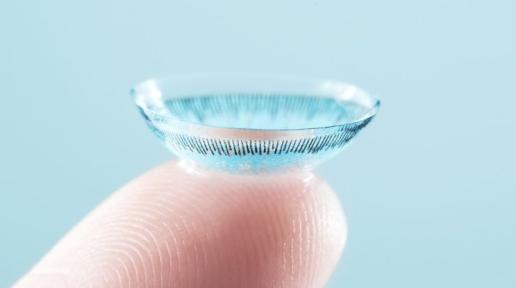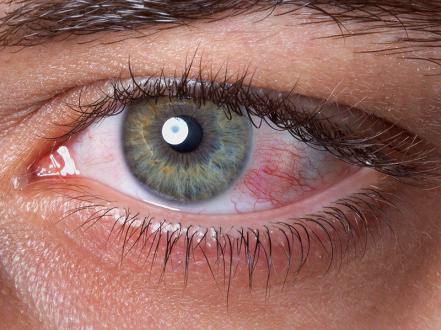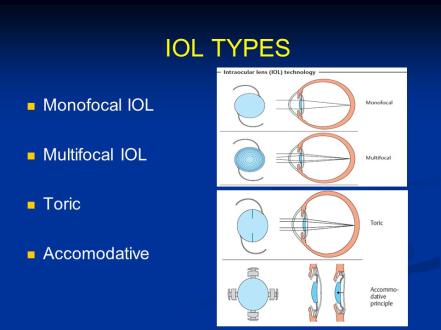Staying on top of their health is vital for moms-to-be, and eyes are no exception. There are some shifts that can be expected but knowing the difference between what's normal and when you might need to flag something up is critical. Like, a bit of blurriness is common, but if it sticks around and a woman starts seeing flashes of light, that's a warning sign.
All mothers-to-be have the responsibility of getting vital details about what is typical and what is not. This information assists individuals in recognizing when assistance is required and planning for the well-being of themselves and their infants during the journey.
Does pregnancy often provoke troubles in one's eyesight?
The eye can be viewed as a complex optical structure, and the correct transmission of the image to the optic nerve depends on its setting. In fact, it consists of several interconnected structures. Many factors affect the functioning of the entire system during pregnancy. The following physiological changes usually occur:
- The eyeball is elongated, which leads to a temporary deterioration of vision.
- A feeling of dry eye during pregnancy.
- Sensitivity decreases.
- Intraocular pressure decreases.
- Changes occur around the eyes (pigmentation, chloasma).
If a pregnant woman feels that her eyesight has deteriorated, it is necessary to plan a visit to an ophthalmologist. The reasons for the changes can be both natural and pathological. It is important to understand and analyze the factors that led to such a state in time.
A very common problem in pregnant women is a chalazion, which is a dense formation that occurs as a result of blockage of the sebaceous gland deep in the eyelids. The reason is most often a change in metabolism and a decrease in immunity. Chalazion is unpleasant because drops and ointments are ineffective. Methods of treatment are injection or even surgical removal. But both should be postponed: after childbirth, the hormonal background stabilizes, and the chalazion can dissolve. Here are more to consider:
In the event that the modifications are temporary: Such as those resulting from the influence of progesterone. This hormone is responsible for promoting conception and pregnancy. The cornea or lens of the eye may also undergo a transformation as a result; consequently, vision will be impaired. Vision will be restored following childbirth when the body will contain significantly less progesterone.
When the modifications are permanent: Similarly, the physician will be able to determine the causes and select the appropriate treatment during the examination. Leaving vision deterioration "on its own" is not a sustainable solution. The question of whether vision will return to normal following childbirth can only be answered by a specialist.
It is important to bear in mind that although mild eye sensations, such as those caused by dry eye during pregnancy, may be expected and resolve themselves after pregnancy, protracted blurred vision (typically resulting from myopia) requires appropriate treatment. Consultation remains crucial, notwithstanding a transient sensation of ocular dryness; self-selection of eye drops is not advised, and a medical professional's guidance is required in such matters.
What causes blurriness?
One of the causes of haziness is an increase in hormone levels. They can cause a number of changes, including shifts in intraocular pressure. Reduced eyesight may emerge as a consequence of these alterations.
In addition, the ocular blood vessels' ability to function properly may be impacted by changes in blood flow due to pregnancy. This is yet another factor that influences the clarity of your vision. It is critical for the mother and the unborn child to attend prenatal medical checkups on a regular basis, particularly if the mother has any problems with her eyesight. Any issues can then be quickly identified and treated.
Are pregnant women at risk for developing eye floaters, and what exactly are they?
Floating black dots in front of the eyes of the pregnant woman are one of the standard vision problems in pregnancy. The vitreous body deteriorates with time; nevertheless, hormonal changes induce an increase in "clots and opacities" within the vitreous body, a condition that affects everyone. Notify your doctor right away if this occurs, as an abrupt rise in "floaters" could be a sign of retinal issues.
Are dry eyes possible?
Against the background of changes in the hormonal balance in the body of pregnant women, the volume of circulating blood increases, and the load on blood vessels grows. Because of this, dry eye syndrome can occur, and intraocular pressure may increase. Within two months after birth, the intraocular pressure indicator returns to regular levels.
How can I manage dry eyes?
Treatment options for prenatal dry eyes will differ from one pregnant woman to the next. Supporting tear function and alleviating dry eye signs, an omega-3 supplement can help manage discomfort levels in the body.
Another piece of advice that could help ease dryness is to stay hydrated by drinking lots of water. Also, keeping the air from being too dry by utilizing a humidifier can help. To protect your eyes from the sun, use sunglasses when you go outside.
Another option for alleviating dry eye symptoms is to use artificial tears that do not include preservatives.
Prior to beginning any new medicine or supplement regimen, it is imperative that you consult your physician.
A change in eyesight could signify a significant pregnancy issue
In addition to being indicative of normal physiological instabilities, vision shifts can indicate preeclampsia. This serious issue can occur in an expectant woman who presents with elevated blood pressure since it reduces blood flow to vital organs. Thus, some of the possible complications include placental problems and impaired baby development.
Failure to promptly detect and treat preeclampsia poses a threat to the health of both the mother and the fetus.
When should I see an eye doctor during pregnancy?
One of the symptoms of loss of visual acuity is the feeling that all objects seem blurry. Such a state can be temporary, for example, after a sleepless night or severe fatigue. But sometimes blurred vision becomes a sign of a serious disease. Additional symptoms require special attention:
- Headache.
- Nausea.
- Dizziness.
- Flashes or black spots before the eyes.
If such signs appear along with cloudiness in the eyes, it is necessary to urgently consult an ophthalmologist to find out the cause. It is strictly forbidden to engage in self-medication, instill eye drops, and take medicines without a doctor's prescription.
Are there any eye safety concerns with medications?
Although most care aids for short-term vision problems in pregnancy may not pose any serious risks, it is important to talk to a doctor before taking any medicine. While some eye drops may include components that could be harmful to a developing fetus, others might be perfectly safe to use while pregnant. As an additional safety measure, non-pharmaceutical treatments like warm compresses or light eye massages could be suggested in certain instances.






